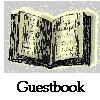







 |
 |
 |
 |
 |
 |
 |
 |
||
 |
|||||||
|
Games: |
|||||||
|
Everway is a freeform fantasy RPG in which players take the roles of heroic figures that travel among countless parallel worlds. Action resolution uses cards drawn from a Tarot-like deck rather than dice. When creating a character for Everway, the first thing a player does is select several trading-card size “vision cards.” These cards depict warriors, monsters, temples, magicians, exotic animals, and other fantastic characters, creatures, and settings. Each player chooses five cards and invents a character based on them. The challenge in designing Everway was helping the gamemaster be ready to accommodate any possible character that players could dream up. Question & Answer During character creation, players show each other their vision cards and explain who their characters are. Then they take turns asking each other questions about the other players’ characters. This step helps players develop their characters more thoroughly and makes engages the whole group in each player’s story. For the gamemaster, however, it’s an opportunity to be sure that the freeform nature of character creation hasn’t left the character missing important details. Standard RPG characters have their combat abilities finely detailed, but freeform characters can have poorly defined combat capabilities. If the character has no apparent combat abilities, the GM might ask, “How would your character handle herself in a fight?” If the character has multiple combat abilities, the GM might ask which is the character’s best combat tactic. Standard RPG characters come with built-in motives, such as “find treasure” or “defeat supervillains.” Freeform characters, however, are sometimes conceived as unlikely to get involved in the plots that are going to drive the campaign. In such a case, the gamemaster can ask, “What sort of circumstances would motivate your character to get involved in a trouble or danger?” Personality Traits Everway has four “personality” traits to ensure that the the freeform character has direction. Motive: A common flaw in freeform character concepts is that the character has no motivation. The player, in order to play “in character,” avoids conflicts, and a character that avoids conflicts is boring. In Everway, each player chooses a motivation so that the each character has some reason to get involved in the conflicts that are going to make the campaign interesting. Virtue, Fault, and Fate: Each player chooses three tarot-like cards from the Fortune deck to represent a personal strength, a personal weakness, and some personal conflict to be resolved. This step helps the player take the broad character concept and sum it up. This step is also a hook for the gamemaster, who uses it to see what is central to each character’s personal story. Character Powers Everway has no list of special powers from which players choose. The system has to be able to take any power that a player has dreamed up and assign a “value” or “power level” to it, so that it can be balanced in the overall character equation. Each power is rated on whether it’s versatile, whether it’s potent, and whether it frequently makes a difference in play. For each answer Yes, the power costs 1 point, with a maximum of 3. It’s a grainy measure of power level, but it’s precise enough for freeform play. —JoT |
|||||||
|
bikes parked near Club Arachnid at Burning Man 2005 click for more |
|||||||